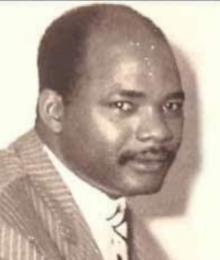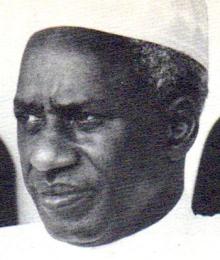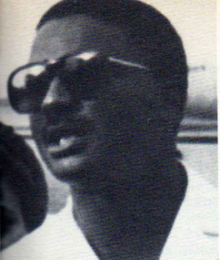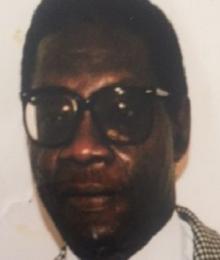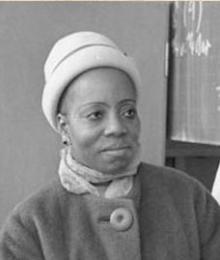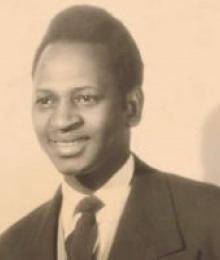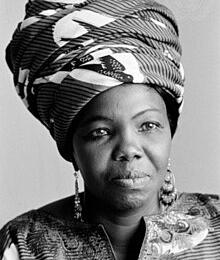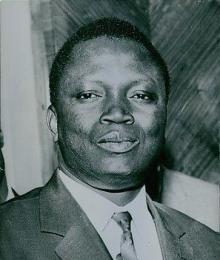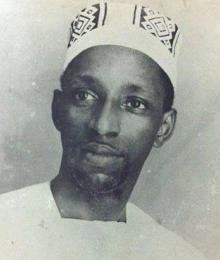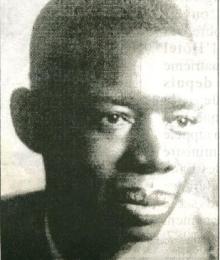
M'Balia Camara (1929-1955) was a Guinean activist and an iconic figure in the struggle for Guinea's independence from French colonialism. Born into a peasant family in Posséah, she became an influential activist within the African Democratic Rally (RDA), where she led the local women's committee in Tondon. M'Balia distinguished herself through her fervent commitment to national independence and women's rights, courageously defying colonial authorities and collaborating local chiefs.
Her tragic assassination in 1955, while eight months pregnant, galvanized the Guinean independence movement. Recognized as a martyr and national heroine, her memory is honored every year on February 9th, Guinean Women's Day. M'Balia Camara's legacy continues to inspire subsequent generations in their struggle for social justice and gender equality in Guinea and beyond.
Introduction
M'Balia Camara, born in 1929 in Posséah in the prefecture of Dubréka, Guinea, is an iconic figure in the struggle for Guinean independence and women's rights. Her courage, dedication, and ultimate sacrifice have left an indelible mark on Guinea's history and continue to inspire current generations. This biography explores the extraordinary life of this national heroine, from her humble origins to her status as a martyr for the independence cause.
Education and Early Steps
Although details about M'Balia Camara's formal education are scarce, it is clear that her most important learning took place at the heart of the social and political realities of her time. Born into a peasant family, M'Balia grew up in an oppressive colonial context, which undoubtedly shaped her worldview and desire for change.
From a young age, M'Balia showed keen intelligence and curiosity about the social and political issues affecting her community. This early sensitivity to injustice laid the foundation for her future political engagement.
Political Activism
M'Balia Camara's political engagement began to take shape in the early 1950s, a period marked by the rise of nationalist movements in Africa. She joined the Rassemblement Démocratique Africain (RDA), a pan-African party that advocated for the independence of French colonies in Africa.
Within the RDA, M'Balia quickly distinguished herself through her eloquence, determination, and ability to mobilize the masses, particularly women. She became an important figure in the local party committee in Tondon, where she lived with her husband, Thierno Camara, a World War II veteran who shared her political convictions.
M'Balia's activism was characterized by a direct and uncompromising approach. She did not hesitate to confront colonial authorities and local chiefs who collaborated with them, denouncing injustices and calling for an end to French domination.
Women's Rights Activist
Beyond her commitment to independence, M'Balia Camara established herself as a pioneer in the fight for women's rights in Guinea. At a time when women's participation in political life was limited, she broke barriers by becoming a respected leader within the RDA.
M'Balia understood that women's emancipation was intrinsically linked to the struggle for national independence. She therefore worked to mobilize women, encouraging them to actively involve themselves in the independence movement and to claim their rights.
Her leadership within the RDA's local women's committee in Tondon helped raise awareness among many women about the political and social issues of the time. She organized meetings, demonstrations, and awareness campaigns, giving Guinean women a voice in the national debate.
Struggle for Independence
The struggle for Guinea's independence was at the heart of M'Balia Camara's commitment. She played a crucial role in mobilizing the populace against the French colonial regime, using her charisma and conviction to rally support for the independence cause.
M'Balia participated in numerous demonstrations and rallies, often at the risk of her life. She confronted colonial authorities with remarkable courage, becoming a symbol of resistance for many Guineans.
Her commitment reached its tragic peak in February 1955, during a conflict with the local canton chief, Almamy David Sylla, who opposed the RDA's actions. This event led to her tragic death, making her a martyr to the independence cause.
Commemoration and Recognition
M'Balia Camara's death galvanized the independence movement in Guinea. Her sacrifice was widely recognized and commemorated, making her a national heroine.
February 9th, the date of the assault that led to her death, was declared Guinean Women's Day in her honor. This day continues to be celebrated each year, remembering M'Balia's courage and sacrifice and inspiring new generations of Guinean women.
Tributes
Numerous tributes have been paid to M'Balia Camara throughout Guinea. The main market square in Conakry, the capital, bears her name, as does an important crossroads in the city of Kankan. These places serve as daily reminders of her legacy and importance in the country's history.
Songs have been written about her sacrifice, perpetuating her memory in Guinean popular culture. Her story is taught in schools, making her a role model for young generations.
Moreover, several state schools, such as the Lycée M'Balia Camara in Conakry, have been named in her honor, emphasizing the importance given to her legacy in educating future generations. Several neighborhoods in cities across Guinea also bear her name.
Private Life
Although her political activism dominated her public life, M'Balia Camara was also a wife and mother. She was married to Thierno Camara, a World War II veteran who shared her political convictions. Together, they formed a couple united in the struggle for independence.
At the time of her death, M'Balia was eight months pregnant, adding an additional tragic dimension to her story. Her pregnancy did not curb her political commitment, testifying to her unwavering determination.
The Tragic End and Legacy
M'Balia Camara's tragic end came on February 18, 1955, in Tondon. During a conflict related to tax collection, canton chief Almamy David Sylla burst into the Camaras' house. M'Balia, pregnant, bravely faced him. Sylla then struck her with a saber, seriously injuring her.
Transported to the hospital in Conakry, M'Balia lost her baby, stillborn on February 11th. She herself died a week later, on February 18th, from her injuries.
Her death sent shockwaves throughout the country. M'Balia's funeral gathered several thousand people, with some estimates speaking of more than 10,000 participants. The funeral oration was delivered by Ahmed Sékou Touré, future first president of independent Guinea, underlining the political importance of this event.
M'Balia Camara's legacy goes far beyond her tragic death. Her sacrifice strengthened the determination of the Guinean people in their struggle for independence. Three years after her death, in 1958, Guinea became the first French-speaking African country to gain its independence.
Conclusion
M'Balia Camara remains an essential figure in Guinea's history. Her courage, commitment, and ultimate sacrifice have made her a symbol of resistance against colonialism and the struggle for women's rights.
Her story continues to inspire Guineans, particularly women, to engage in the political and social life of their country. It reminds us that the path to independence and equality was paved by the sacrifice of many heroes and heroines, of whom M'Balia Camara is one of the most eminent representatives.
M'Balia Camara's life, although short, had a lasting impact on Guinea. Her legacy endures through commemorations, tributes, and the inspiration she continues to instill in new generations. She embodies the strength, courage, and determination that characterized the struggle for independence and women's emancipation in Africa.
Ultimately, M'Balia Camara is not just a historical figure, but a living symbol of the resilience and spirit of resistance of the Guinean people. Her story remains a powerful reminder of the sacrifices made for freedom and equality, and a source of inspiration for all those who continue to fight for these ideals.












